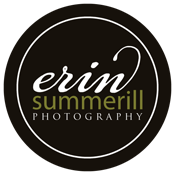Two nights ago I stayed up till 3:23 in the wee morning reading the new book, Slayers by CJ Hill (aka Janette Rallison). I've been a big fan of her writing for quite some time. Usually it sort of falls under the chick lit category, so I was curious to how well Janette would pull off a fast-paced adventure. Of course, I can't share that now. I gotta keep all of my five blog readers coming back. So I'll post my opinion on Slayers tomorrow. You won't want to miss that.
But I walked away feeling newly inspired to write better dialogue. Janette's dialogue is witty, funny, true to character personality, and never forced. It makes her characters and the story come to life.
Dialogue is often my own challenge, but I've seen a lot of awkward talk in published books. I'm always surprised when I find a little "maid and butler" in something I pull off the new releases at B&N.
In order to write better dialogue, I've developed a system.
1. I write the conversation as fast as I can as it pops in my head. I don't worry about punctuation, or blocking, or tags.
2. Then later, after a trip to Harts for my Diet Coke, I read through the scene out loud. (Ask Jessie Humphries. She said I'm a mumbler when I'm writing. It's mainly because I'm getting a feel for my dialogue). When I'm reading, I omit anything that sounds awkward or fake to the characters in the scene.
3. Last I add blocking. I have them move, or show expression.
4. Then I read it once more out loud, and adjust anything that feels awkward.
My process is somewhat layered, but it's helped me create better dialogue. Maybe one day I'll be a master like Janette.
What do you do to create witty and natural dialogue? I'm quite curious.






16 SPLURTS:
Not only do you mumble, but you sway, jerk, huff and puff, and I could tell you were writing a kissing scene that one time when you started licking your lips! Lol.
I just write it and then let me crit group say if it works or not. :)
Jessie, I only write my kissing scenes when you're around.
I like how you write your dialogue, I'm going to try it with my editing :-)
(Don't forget the jerking while you're writing. ;))
When I write dialogue, I just always make sure there is one of the characters in the scene is an Erin-aracter. (I find it helps to sprinkle Erin-aracters throughout your book, so they're always present whenever you need dialogue.) Then I just write how I would respond to that character's dialogue.
Then I delete it all because it's too unbelievable, and start over.
I think at first I write too much dialogue, so I cut a lot when I go back through. Sometimes it's much more efficient to have things come out in other ways. And sometimes, dialogue just grounds a character in a scene like nothing else can. Reading it out loud helps A LOT, imo.
I like your idea of just writing it all out without blocking it out or writing any action.
I think that's a good idea.
LOL - 5 readers! Oh pu-leez! You rock girl. I love reading your blog. Can't wait to hear more about the book too!
That's a great process you've got there. For me, I read it out loud. Btw, everything sounds weird when you read it out loud. Or...maybe it's just me. ;)
Rewrite. Rewrite. Rewrite. Delete. Rewrite . . .
I have so many conversations going on in my head that I just need to listen in on them and then write it down. :o|
I think it's the one area that I don't seem to struggle with.
Iain, I think listening to your thoughts would be very entertaining!
And Peggy, what the? I'm not quite sure what that means. I'm just normal.
I do pretty much the same thing and if I don't get the conversation down as it is happening in my head the next time I go to write it is a totally different conversation. I tend to let my conversations tell the story. Made it easier to write my story.
HI *waves* I'm new here but ADORE your blog! So super cute!!
I used to have trouble with dialogue and took my friends advice. Went to shops, stores, plays and listened to people's conversations only to later mimic them on paper. Soon I added my own flare and my wit and personality eventually came to life.
Best of luck! I'm sure you'll nail it!! Look forward to future posts!
Sometimes I have to write out the dialogue in layers, adding in the character movements and dialogue tags last - but other times everything just spills out semi-perfectly. LOL. If only there were a rhyme or reason to it.
I write dialogue in a very similar way--always the words first and the blocking in a later draft. I've wondered though if this method leaves the blocking feeling a little forced. So for this next novel, I'm attempting to write blocking and dialogue at the same time. We'll see how it goes.
Erin,
I love dialog! I have a background in theatre, so for me, it just pops out. I just love how dialog pulls a reader into the story.
Here's how I do it:
I write it and make sure that every word counts and is believable for that character.
Wow! Erin, I think I just got another idea for one more in my Strong Dialog Series! ...Make every word count. Dialog in fiction should not include the mundane.
Off to capture this gem... (I love Eureka moments!)
Post a Comment